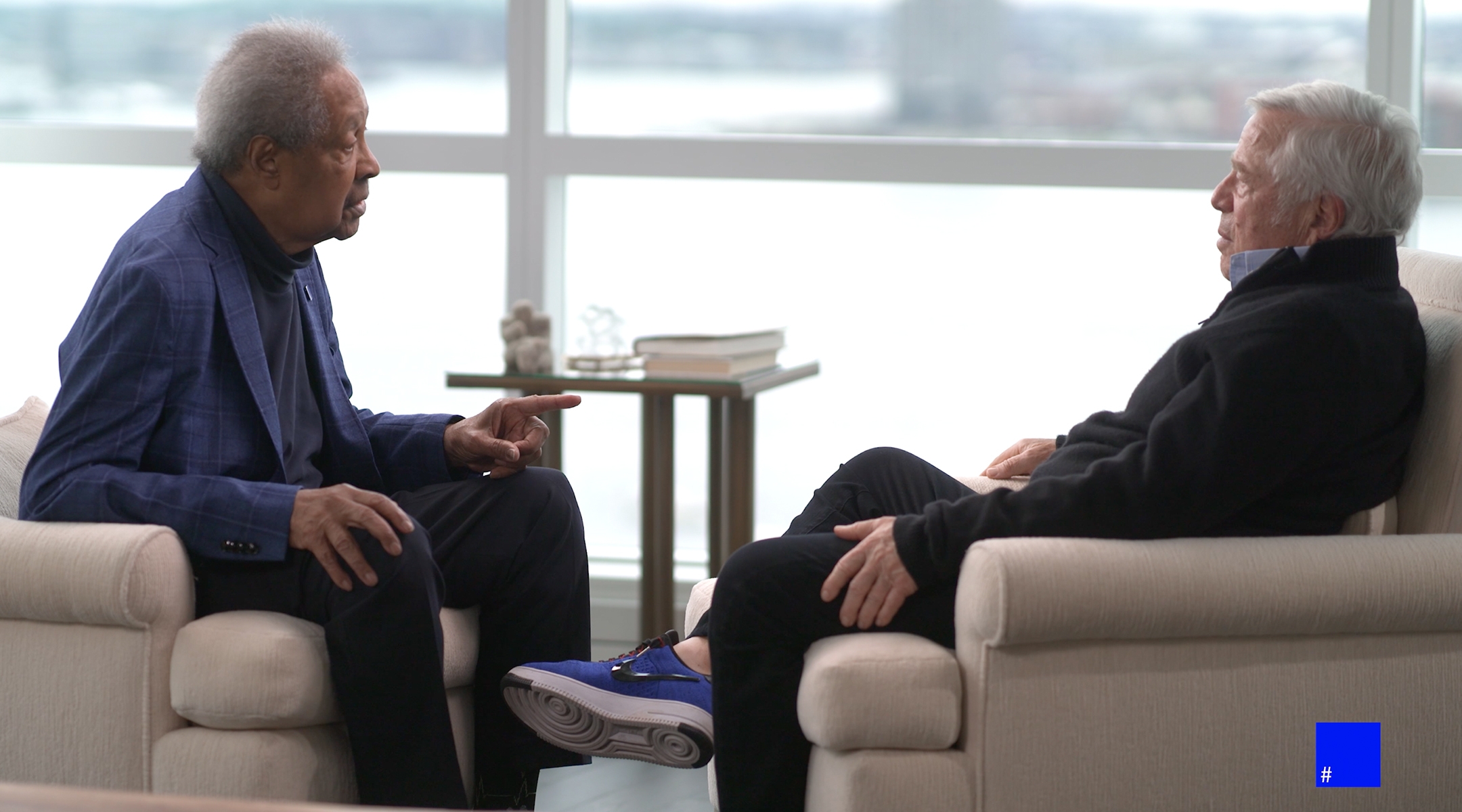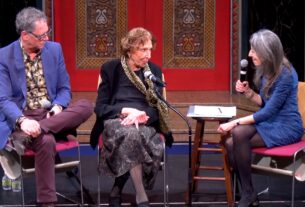((JR)) — An icon of Black history takes center stage in an ad placed by the Foundation to Combat Antisemitism on Sunday night’s Super Bowl LVIII, expected to be viewed by 100 million people.
Robert Kraft’s foundation launched the “#StandUptoJewishHate” campaign last year to raise awareness about antisemitism and the importance of opposing it. Now, it plans to bring that campaign during the matchup between the San Francisco 49ers and the Kansas City Chiefs.
Its Super Bowl ad features Clarence B. Jones, the former lawyer and advisor to Martin Luther King, Jr. who drafted King’s famous “I Have A Dream” speech for the 1963 March on Washington. He and Kraft have engaged in a conversation about the historic Black-Jewish alliance in U.S. politics, according to videos posted online by the foundation.
“You know how to make a 93-year-old man cry,” Jones tells Kraft in one video, after the Jewish owner of the New England Patriots informs him that their conversation would feature in the Super Bowl ad.
The ad, whose airtime industry experts estimate cost $7 million, comes at a tense moment in Black-Jewish relations in the United States. Many Black activists have allied themselves with the Palestinian cause in Israel’s current war against Hamas in Gaza, in what many Jews are experiencing as a painful fracture in a long (and idealized) history of shared civil rights advocacy.
The war has also induced a spike in reported incidents of antisemitism in the United States and beyond.
“What we’re going to do after this ad is build bridges to get more love and subdue the hate that’s going on,” Kraft tells Jones during the call. He adds, “I hope it helps to do in a small way for America what we need done. … You be well, brother.”
Tara Levine, the president of Kraft’s foundation, told the Jewish Telegraphic Agency that the commercial aims to connect antisemitism to other forms of racism.
“It centers around this concept that all hate thrives on the silence of others, and it puts Jewish hate squarely in conversation with other forms of hate,” Levine said. “That concept of standing up to silence is something that Dr. Jones, who is featured in the ad, and Robert Kraft, obviously feel very deeply [about].”
Jones is the chairman of a nonprofit, Spill the Honey, that aims to cultivate a new generation of Black-Jewish collaboration in the arts.
“Black people have an affirmative obligation to not remain silent in the face of obvious antisemitism, and Jewish people have an affirmative obligation to not remain silent in the face of obvious racism against Black people,” Jones told J., Jewish News of Northern California, on Friday. “To be silent in the presence of hate makes you complicit in that hate.”
The Foundation to Combat Antisemitism has purchased television ads before, including during NFL games, but Levine said the Super Bowl ad represents “the single largest opportunity to reach Americans across the country.” Levine said the ad was shot in Los Angeles with the Black-owned digital agency Quantasy.
“It was incredibly important for us to work with a partner like Quantasy to be able to bring this story to life, to tell Dr. Jones’s story and to truly talk about this topic with authenticity and meaning,” Levine added.
Kraft launched the Foundation to Combat Antisemitism in 2019, saying he would invest $20 million of his own money in addition to the $1 million he received for winning the Genesis Prize, which honors prominent Jews who make a positive impact. Since then, the foundation has run awareness-raising campaigns, convened conversations with athletes and performers about antisemitism, and distributed blue pins that wearers can don to signify solidarity with Jews. It has also drawn questions about whether TV ads are the best use of resources aimed at keeping Jews safe.
The commercial is one of several that Levin said FCAS is producing as part of its splashy campaign to call attention to antisemitism. Another ad, filmed at a Toronto synagogue, depicts the true story of a Massachusetts church that took in attendees from a bat mitzvah service when their nearby synagogue was evacuated because of a bomb threat.
The Canadian Jewish News initially reported last week that the ad would appear during the Super Bowl. In an interview with the news outlet, Rabbi Michael Dolgin, who appears in the ad, said the commercial’s director told him that “even if we affect and change one person’s mind, then this will all have been worth it.”
Other ads premiering on Super Bowl weekend will call attention to the Israeli hostages in Gaza.
Ads produced by the Israeli government will air in some places Super Bowl viewers are likely to see, including on Paramount streaming and on social media. One of them focuses on fathers who are now separated from their children, in an appeal to the millions of dads who pay attention to football. Another contrasts a raucous crowd at a football game with the absence of the hostages before concluding with a “Bring Them Home” chant.
And the Hostages and Missing Families Forum has launched its own ad calling attention to the hostage crisis. It features the Jewish actor Michael Rapoport, who has toured Israel since the Oct. 7 attack in which Hamas took the hostages, and will appear on social media.




